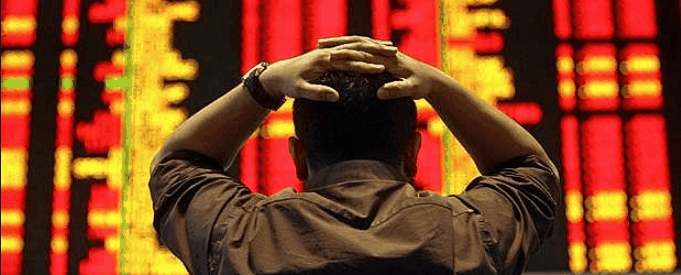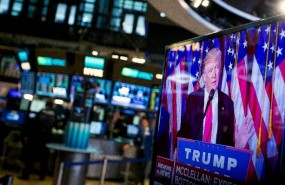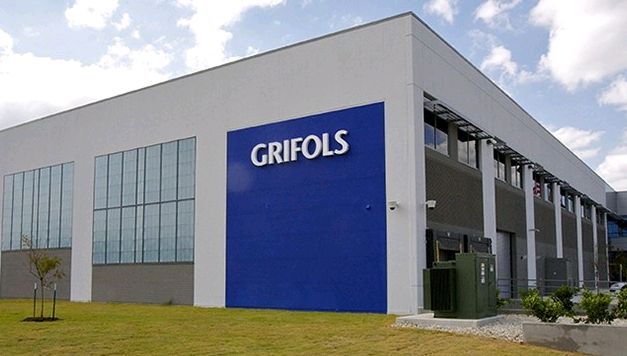- In the general stock exchange, Abengoa’s shares tank once again
- Spain’s deficit situated at 4.3%, lower than expected

The Ibex 35 rose 0.37% and conquered 10,400 points (10,405.90), pushed on by the advances of ACS, Grifols, ArcelorMittal and Repsol, which had a rise of more than 1% due to the increase in price of Brent crude. The gains were moderate in all major European markets, apart from London’s FTSe which fell slightly.
- 11.473,900
- 0,33%
ACS shares gained 2.88% to 31.61 euros. On 1 May it is forecast to surpass 33.899 euros per share, with an options plan for high executives to be activated to the cost of 210 million euros.
JPMorgan lifted the target price of Grifols to 25 euros from 22, and maintained its Overweight rating. The stock gained 2.08% in the Ibex, followed by ArcelorMittal (+2.01%), and the aforementioned Repsol (+1.46%).
Big stocks such as Santander (0.4%), BBVA (+0.38%), Iberdrola (+0.30%) and Telefónica (+0.29%) had a quieter day at the office but still closed higher. The least profitable companies were Merlin Properties (-0.88%), Indra (-0.51%) and Sabadell (-0.47%).
Deutsche Bank analysts increased Abertis’ target price by 10% to 16.50 euros, while also reiterating its Buy rating for the stock.
The Ibex will take on its last session of March on Friday, quoting above 10,400, a figure not seen since 2015, and could see a fifth consecutive positive week.
In the general stock exchange, Abengoa was once again the talking point after plummeting 47.99% (Class A) and 41.92% (Class B), owing to the release of 17.8 billion new shares, which will dilute the stake of current investors by 95%.
ECONOMY: SPAIN BRIDGES THE DEFICIT
At an economic level, inflation data was released for March which showed seven points lower to 2.3% after the loss of electric and gas. In Germany, the inflation rate of the same month lowered six points to 1.6%.
Spain also saw the release of deficit data from the Public Administration Office, which closed 2016 at 4.33% of PIB, without counting the banking sector aid, and 4.54% including those figures. In the US, fourth quarter GDP was released and showed a high of 2.1% from 1.9%. The main driver was the private consumption increased from 3.5% from a previous 35. Wall Street registered moderate gains at the close of Euro markets.
GEOPOLITICS: BRITAIN AND FRANCE
The United Kingdom has finally delivered the official confirmation that it is to leave the European Union, beginning a period of days where plenty of information will be disseminated by both sides relating to the process of negotiations. An agreement must be reached within 18 months, and it appears as if they have gotten off on the wrong foot. Most publications speak of the first day of Brexit in which it was clear that the negotiations were not going to be easy. Theresa May wants to negotiate at the same time Britain’s departure as well as its relations with the states afterwards, something Angela Merkel has refuted.
With the passing of Brexit day, the market cannot rest on its laurels for political events, as April sees the arrival of presidential elections in France. The general opinion is that the National Front’s Marine Le Pen will take second place in the vote and will be pipped by centrist candidate Emmanuel Macron. Despite Le Pen’s threat to the markets, several big investment banks have doubled down on their European bets, based on favourable company results in recent times.
TECHNICAL ANALYSIS
Returning to Spain and the Ibex, the moderate falls of the previous session confirm that the Spanish index remains strong and shows little sign of weakness. “The normal thing would be that we see continuity in the rises towards 10,500 points. We will not see much weakness while we quote above 10,191 points. However, the key support level is at 10,092 points. Only with a lower movement to this level would we see a serious downward movement,” said Bolsamanía technical analyst César Nuez.
Noticias relacionadas

La banca y Telefónica alejan al Ibex 35 de los 10.400 puntos

Wall Street cierra con signo mixto por la incertidumbre sobre Trump

Tres valores que han superado resistencias este miércoles

El IPC interanual baja siete décimas en marzo, hasta el 2,3%, por luz y gasolinas


